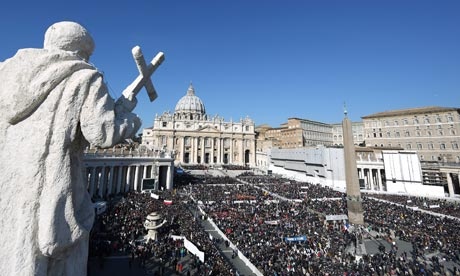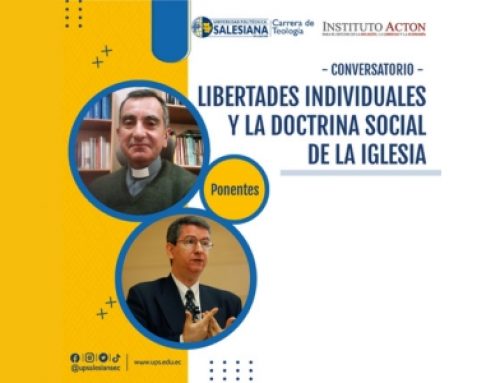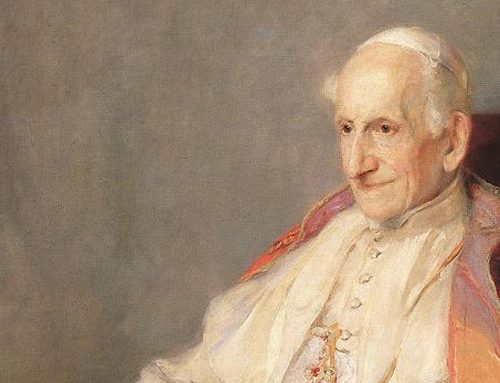Enero de 2015
Por Flavio Felice
Fuente: AEI
The debate between Christianity and classical liberalism turns up again cyclically, and there is always someone who brandishes the concept of “social justice” as the reason for their incommunicability and irreconcilability. Instead, we believe this very concept expresses the reasons for an encounter that is too late in the coming. A meeting that would allow us to go beyond the “State-market” opposition, highlighting “civilian” dimension as that where the market processes, far from being denied or driven by politics and the State, take on the authentic character of living with each other and not against each other. This is the idea of the market as a relational process, nurtured by sympathy, rather than by the sovereign’s self-interested benevolence, that is, by the blind indifference to others’ expectations.
To clarify this point, we can take as an example the critical comparison between Antonio Rosmini and the Austrian economist Friedrich August von Hayek, on precisely this topic of “social justice”, and see how we can develop a kind of “classical liberal” personalism of a Hayekian and Rosminian matrix, able to satisfy both the authentically liberal demands as well as the moral-religious import. Rosmini manages to integrate these two moments, which in Hayek are deliberately and methodologically kept separate.
Our authors’ positions envisage a possible point of encounter in two theoretical perspectives: anticonstructivism and antirationalism.
A comparison with Hayek reveals the fundamental importance of Rosminian constitutionalism, as that through which the cleric from Rovereto manages to incorporate the principle of “social justice” as a social regulatory policy. Hayek, as we know, rejects this concept; he finds it “atavistic”, the offspring of a tribal society, or “dreamlike”, inasmuch as it is the product of a “mirage” in which the “great society”, Popper’s “open society”, cannot allow itself the risk of losing its way, under pain of being swallowed up in the clan-like and tribal dimension that in the contemporary age has taken on the dark and terrifying hues of totalitarianism. According to Hayek, the notion of social justice is devoid of content, because the governmental apparatus is unable to act for a specific purpose, since it expresses its will through law, characterized by abstractness and the generality of its ends. It follows that the request for social justice will be picked up by some members of society, who will assign specific production quotas to various individuals or groups. For Hayek this submission, aiming for social justice, will inevitably lead to the elimination of those conditions which are essential to the growth and development of personal freedom.
Hayek, for methodological reasons, is therefore strongly determined to restore the principle of “justice” to the dimension of personal activity. Actually, Rosmini’s personalism contemplates the notion of individual commitment to develop political and economic institutions in an attempt to respond to the need of “social” problems. That is, the need for individual action is met by the construction of social institutions: this the so-called “institutional way of charity” expressed by Benedict XVI in “Caritas in veritate“.
For justice, as a virtue, is practiced by the person (and it could not be otherwise), but individual ideas and actions, if repeated and sanctioned, become political and economic institutions that, to the extent that they respect and promote human dignity, can be defined as being focused on “social justice” – or contradicting it. In that sense, Rosmini would dodge “Hayek’s ambush”. He ultimately does not make the mistake Hayek imputes to a part of Catholic social thought, often entranced by the sirens of statism and corporatism. Indeed, Rosmini, quoted by Hayek in the second volume of Law, Legislation and Liberty, titled The Mirage of Social Justice, does not interpret the principle of social justice in a holistic way; in practice, he does not transfer responsibility for the exercise of the virtue of justice to the “State” – the interpretative criterion of the concept of social justice in Rosmini remains the human person.
On the basis of the comparison between Hayek and Rosmini, assuming the “institutional way of charity”, we can redefine the notion of social justice, untying it from a statist, corporatist and monistic perspective, and anchoring it to the principles of horizontal subsidiarity and polyarchy. For this reason, in free societies citizens are inclined to use their tendency to associate to exercise new responsibilities and to pursue social ends. Social justice is the particular form taken nowadays by the ancient virtue of justice. Therefore, social justice does not necessarily entail the strengthening of the State’s presence, but, rather, the responsible development of civil society.
At this point, the practical implications and political impact of such Rosminian and Hayekian considerations are evident regarding the social order. An order observed in its concreteness and contingency, at least inasmuch as one considers the social order as a complex, polyarchical system, one that is far from homogenous and within which its institutions – political, cultural and economic – exist in a non-corporate pluralism that refuses the institutional hierarchy and, with it, the baleful primacy of politics.
Flavio Felice is Adjunct Scholar at the American Enterprise Institute and President of Tocqueville-Acton Centre Studies (Milan-Rome)





Deja tu comentario